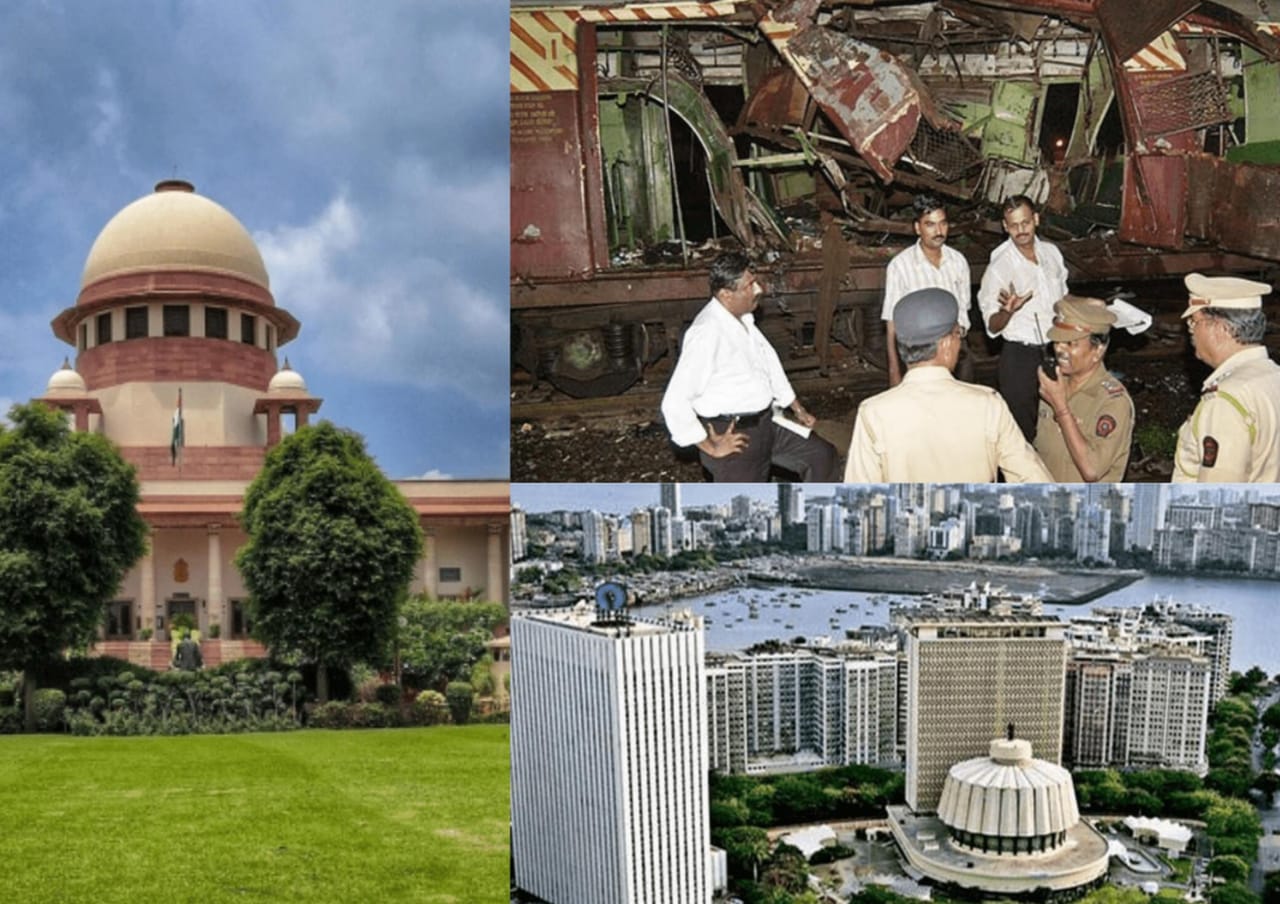
In a significant development, the Supreme Court on Thursday, 24 July 2025, stayed the Bombay High Court’s recent judgment that had acquitted all 12 individuals convicted in connection with the 2006 Mumbai train blasts. However, the apex court clarified that the accused will not be required to return to prison at this stage.
A bench comprising Justices M M Sundresh and N Kotiswar Singh issued notices to all 12 accused in response to an appeal filed by the Maharashtra government, challenging the High Court’s decision. While staying the judgment, the bench said, “Let them remain outside, there is no question of bringing them back to prison at this stage.” The court also ordered that the High Court’s judgment will not be treated as a precedent, thereby restricting its impact on other ongoing or future cases under similar laws.
Solicitor General Tushar Mehta, representing the Maharashtra government, submitted that the acquittal judgment could have serious implications for other cases prosecuted under the Maharashtra Control of Organised Crime Act (MCOCA). He stressed that the state was not demanding the re-arrest of the accused but sought a stay primarily to avoid broader legal consequences. “We are not seeking custody. The concern is the precedent that this judgment could set,” Mehta told the court.
The Bombay High Court, on 21 July 2025, had overturned the 2015 convictions handed down by a special MCOCA court. The lower court had sentenced five of the accused to death and seven others to life imprisonment. The High Court, however, noted severe shortcomings in the prosecution’s case, declaring the evidence unreliable and observing that the confessions and recovery of RDX were not credible. It concluded that the prosecution had “utterly failed to prove the case” and that it was “hard to believe the accused committed the crime”.
The 7/11 Mumbai train bombings, one of the deadliest terror attacks in India, took place on 11 July 2006. Seven coordinated bomb blasts ripped through suburban trains during the evening rush hour, killing over 180 people and injuring more than 700. The case had been considered a landmark in the use of MCOCA to tackle terrorism.
Reacting to the High Court verdict earlier this week, Maharashtra Chief Minister Devendra Fadnavis called it “shocking” and said that the state would appeal to the Supreme Court. “We have a duty towards the victims and their families. We will pursue this legally to ensure justice,” he had stated.
Special public prosecutor Ujjwal Nikam, who was not involved in the latest appeal but had earlier prosecuted several high-profile cases, also expressed concern over the High Court’s rationale. He warned that dismissing confessional evidence on technical grounds could weaken the framework of anti-terror prosecutions in India.
The Supreme Court has now sought replies from all 12 acquitted individuals. The matter will be taken up in detail in due course, with the top court expected to closely examine the evidence, witness testimonies, and procedural aspects of the case. Until then, the accused will remain free, though their acquittals are now effectively suspended.